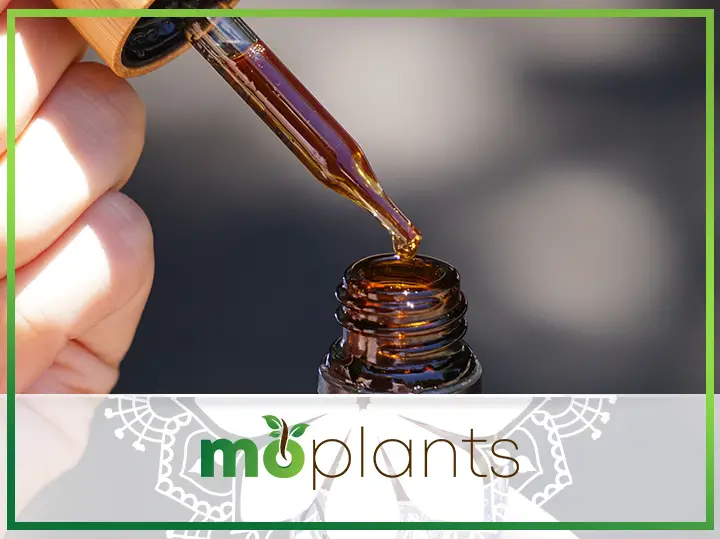Neem oil can often be used as a pesticide. It is an organic insecticide that has a chemical molecule known as (azadirachtin) that can harm pests like aphids and mealy bugs when they ingest the leaves. Many people apply neem oil to plants to protect them against these insects. But the question remains, can neem oil harm beneficial insects? Read on as we tell you more.
Why Do Plant-Owners Use Neem Oil?
There are many different uses of neem oil in your plants. We mentioned before that neem oil may be good for keeping pests away from plants. If you’ve ever scoured the pesticide aisle at your local store, there are often several bottles of neem oil here.
Many plant owners want organic ways of removing bugs and insects, so they often use neem oil as an alternative. Neem oil acts as one of the most environmentally safe pesticides you can use for your garden.
Furthermore, now more than ever, people are interested in organic gardening, which is why neem oil and neem oil compounds are growing in popularity.
If you want to get rid of the pests and bugs safely in your vegetable patch, then using Neem oil may be the best way to do this.
What are Beneficial Insects, and How are They Different from Bugs?
We can majorly divide insects into two categories: beneficial and harmful. Harmful insects are often called pests, meaning they harm different species of plants. Pests feed on the plant and restrict its growth.
However, beneficial insects are those that ensure the plant’s growth or help in its reproduction. Beneficial insects include bees like honey bees and pollinators like bumble bees and houseflies.
Beneficial insects do not feed on the plant itself. Even honeybees take the nectar from the flower without harming the plant. Beneficial insects will often also keep pests in check and thus will conduct pest control.
Does Neem Oil Harm Beneficial Insects?
Neem oil will not harm insect pollinators since these bugs will not feast on the leaves. Neem oil generally rests on the plant’s surface, and since these insects will not ingest the leaves, they don’t get any of the neem oil. Thus, the chemical extract that creates an issue: azadirachtin, is not taken in by these insect pollinators, so they remain unaffected.
Similarly, other beneficial bugs, like ladybugs, aren’t affected by neem oil since they don’t eat the leaf structure. So we can safely state that neem oil doesn’t harm beneficial insects.
However, there are ways that neem oil could harm these insects. For example, if you take concentrated neem oil in a bottle and spray these helpful insects with the oil, you may harm them. Since neem oil may be dense, it may cover bees and pollinators enough that they are weighed down or can’t breathe due to the onslaught of oil.
Thus, you must be careful not to attack beneficial bugs with neem oil as it may cause them some harm even if they don’t ingest the neem oil.
Does Neem Oil Harm Pollinators?
Pollinators aren’t just insects. Animals and human beings are also pollinators. So the question is, can neem oil harm pollinators? It might. Simple bugs like ladybugs or bumblebees are some of the most common pollinators. They will take the pollen from the flower and transport it around. However, these insects rarely eat the leaves, so you won’t have to protect them from neem oil.
On the other hand, many animal pollinators do eat leaves. However, the only pollinators you must protect your plants from in a garden, are your pets. You want to ensure that your home plants do not accidentally end up in your pet’s stomach. Furthermore, if you’re planning to eat from your garden, wash your vegetables and herbs with water and soap before you cook them. Neem oil in concentrated amounts can be harmful to children and especially to pregnant women. Thus, it’s something that you must take care of.
How Does Neem Oil Affect Bees?
Bees are the most important bugs for any plant. Not only do they help in pollination, but they also ensure that honey is made. Neem oil doesn’t affect bees if you apply some to the leaves since bees never feed on leaves. However, if you apply a larger amount of neem oil to a bee, you will see some toxic effects.
Some researchers applied neem oil to honey bee colonies and found that this reduced the number of parasites well within the colony. However, they also found that it affected the queen bee mortality. It also made the mass of honeybee larvae quite less comparatively.
How Does Neem Oil Affect Butterflies?
Special butterflies are available only on the cabbage plant called white cabbage butterflies, which are a nuisance to the cabbage patch in the larva stage. So many gardeners will apply neem oil to these larvae to ensure they die out. However, apart from these butterflies, neem oil doesn’t have a notable impact on the butterflies.
There is also little research available on neem oil’s effect on butterflies.
When Should You Use Neem Oil?
If you want to use neem oil, you must use it when you’re sure that pollinators will not be around. Thus, we recommend early morning or late evening. These are the times that most pollinators have gone to bed, and only harmful bugs or pests persist. Applying neem oil in direct sunlight may burn the plants and leaves, making them worse.
Neem oil remains effective for all kinds of pests regardless of the stage they’re in, i.e., neem oil can kill larvae and pupae as much as it can kill actual insects.
Final Thoughts
Neem oil acts as quite an effective deterrent when it comes to pests. However, the best thing about neem oil may be that it doesn’t harm beneficial insects such as bees, butterflies, or other pollinators when you use it normally. However, if you use concentrated levels of the oil, it can prove harmful.

